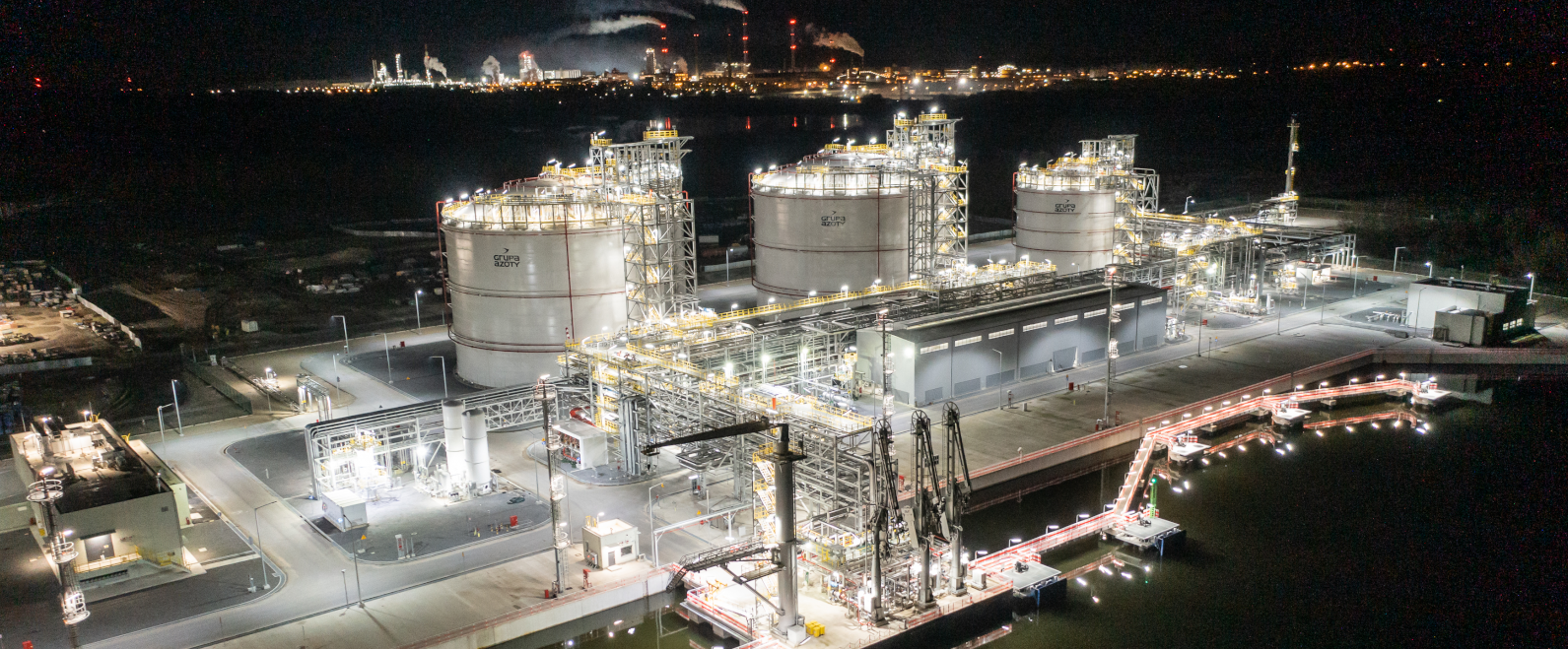
On 2 February 2024, at the registered office of Grupa Azoty Polyolefins, the General Contractor submitted a change proposal to the turn-key contract for the execution of the Polimery Police project, as announced by Grupa Azoty S.A. in a current report.
The General Contractor proposes to extend the completion time of the Polimery Police project by an additional 95 days and to increase the General Contractor’s fee by EUR 39,772,455.
This is yet another proposal by the General Contractor to change the project’s completion time. On 13 November 2023, Hyundai Engineering Co., Ltd. submitted an EOT (Extension of Time) letter, which was announced by Azoty Group S.A. in a current report. The changes to the EPC Contract proposed by the General Contractor at the time included only an extension of the project’s completion time by 166 days (counting from 31 August 2023) with no change in the fee.
In the document submitted on 2 February 2024, the General Contractor cites events related to specific parts of the project that occurred in late 2023 and early 2024 as the grounds for requesting an extension of the project’s completion time by another 95 days and an increase in the fee. In the General Contractor’s opinion, those events made it impossible to complete the plant start-up stage to achieve the assumed guaranteed plant performance and thus finish the work under the project.
Under a turnkey EPC contract, it is the General Contractor who is responsible for carrying out all the work at each stage of the project, such as obtaining the relevant permits, procurement and delivery of equipment and materials, construction work, commissioning, and start-up.
Along with the letter, Grupa Azoty Polyolefins received a comprehensive set of documentation which will be thoroughly reviewed and verified in terms of its validity under the EPC Contract, in accordance with the procedure provided for in the EPC Contract and under other agreements between the Company and the General Contractor, as well as in the light of relevant facts.
Simultaneously, the Company emphasizes that despite the delays reported by the General Contractor, both the production of polypropylene and the ongoing regulatory processes supporting the expansion of manufacturing capacity continue without interruption. For the first time in the project’s history, a transition to switch between different types of homopolymer grades during production was successfully executed at the polypropylene plant.
On 1 February 2024, a several-hour test run of the maximum design capacity of the polypropylene plant was successfully completed. This confirms readiness for the upcoming Performance Guarantee Test Run for the polypropylene plant.
A test run of the ethylene heater for the polypropylene plant was conducted at the Marine Gas Terminal in Police. The test runs confirmed the possibility of transmitting the required amount of ethylene for the production of the target portfolio of copolymers. Simultaneously, the performance of the ethylene compressor, operating with the target medium for the first time, at the polypropylene plant was also verified.
Copolymers find application in the production of highly transparent thin-walled packaging, food packaging, household goods, sports equipment, and recreational items, among other uses.
In January 2024, the Polimery Police complex supplied hydrogen from its own production to Grupa Azoty Zakłady Chemiczne Police’s ammonia plant for the first time.
The submitted proposal to extend the completion time of the project may affect the timing of the Full-Load Run.
